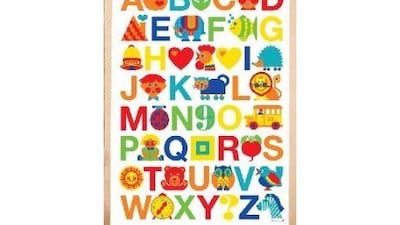It is often said that Arabic ranks among the world's hardest languages to learn, and the variety of dialects throughout the region makes the task only more daunting.
Hardly surprising, then, that there has been a strong response to a new course at the Eton Institute in Dubai aimed at teaching expatriates to converse with their Emirati colleagues.
Taught by an Emirati instructor, the course provides an insight into local culture as well as business terminology and phrases.
"The course taps in to various situations," says Moaz Khan, the institute's marketing manager. "Even if it is for something as simple as requesting for a day off. If it is said in the native Emirati dialect to an Emirati manager who is in charge of that particular individual then I am sure that will make a huge difference. It will definitely be of great value for people in business because it facilitates communication and builds confidence."
The course covers how to meet and greet superiors, address other colleagues and request meetings, as well as terminology relating to budgets, sales and leadership, among others.
"It doesn't just cover Emirati conversation, but it also delves into the culture in the UAE and the sensitivities involved if you are doing business over here," says Mr Khan.
The institute launched a pilot course last month with only four students but has received more than 50 inquiries for the next course. Registration closes on May 22.
"We had a lot of interest from our students for an Emirati foundational course, but it has always been a case of finding someone local who can take the course because it wouldn't make sense for somebody from Egypt or Syria to teach the Emirati dialect even if they know it," Mr Khan says. "Thankfully we now have a great instructor who is very passionate about teaching her native language and culture. She's doing a great job."
Newcomers to the region may be surprised to learn that the Arabic spoken in the UAE is slightly different to that in other countries. The difference is in the way words are used and pronounced in a particular context.
For example, in standard Arabic, the word for thank you is "shukran". However, in the Emirati dialect, thank you is "mashkoor" when addressing a man and "mashkourah" for a woman.
The course is divided into two levels, beginners one and beginners two, and covers a range of scenarios. "It's basic Arabic like meeting and greeting people, at the supermarket or the airport and perhaps while travelling," Mr Khan says. "It obviously has huge potential and we will develop it as we go on and create various levels for it, but at the moment it's going to be very basic. It's mostly for people who don't speak Arabic at all."
Eventually there could be courses tailored for business people.
"Depending on what feedback we get back from students we will develop it further. I think it's a matter of time before we have perhaps properly tailored courses for business individuals or people who are looking for a job. We could have one tailored to interviewing skills and so on," says Mr Khan.
Each course level costs Dh985 (US$268.15) and lasts a total of 16 hours. The next beginners one course runs from June 1 to July 4. Topics include greetings, questions, directions and professions.


